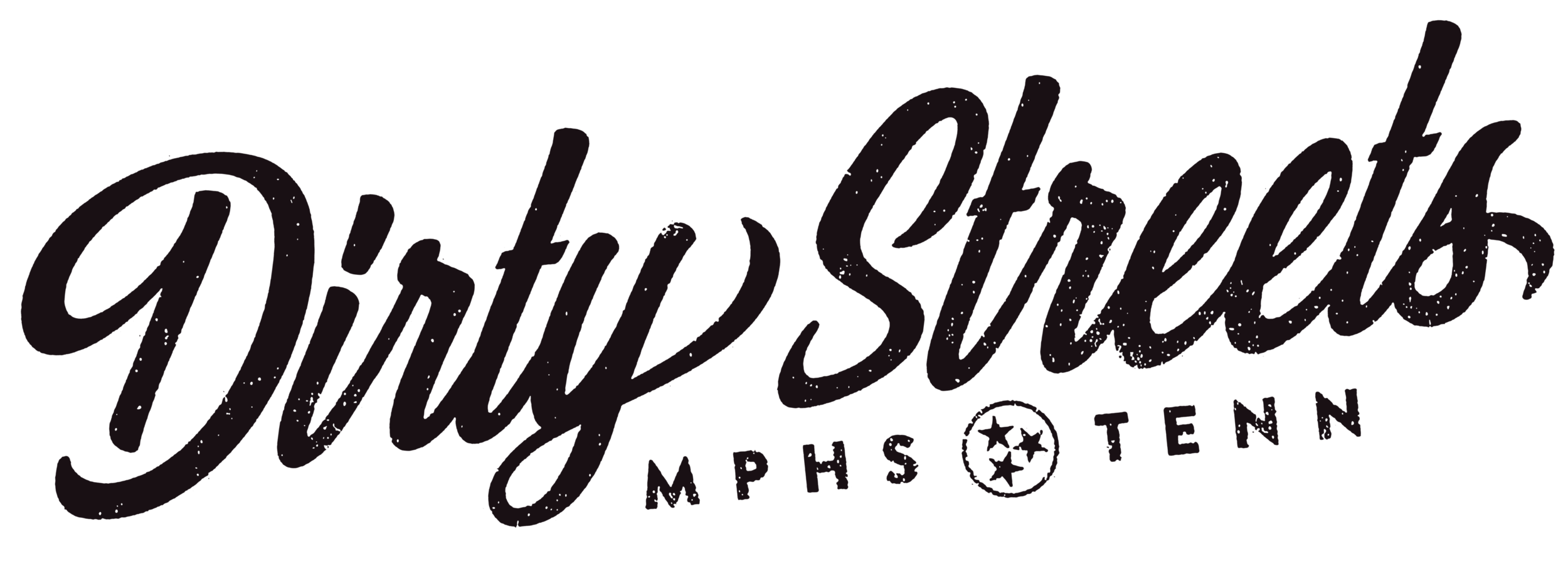

New Unreleased Music
New unreleased album Who’s Gonna Love You produced by Grammy award winning engineer, mixer, and producer, Matt Ross-Spang (Jason Isbell, Margo Price, John Prine, Charley Crockett).
2021 Sampler
“Who’s Gonna Love You” - Full Album

Videos

Press
“This is some heavy music indeed… a good mixture of blues and groovy southern rock that you’ll want to blast out the windows of your car.”
“Dirty Streets separate themselves from the like-minded pack who want to sound like Humble Pie and Grand Funk Railroad with contagious enthusiasm, sharp songwriting, and some ass-whoopin’ riffs.”
“Memphis’ throwback, garagey-arena rockers, Dirty Streets, were clearly brought up on copious amounts of rocknroll, Stax soul, Howlin’ Wolf’s howl and harp skills, Hubert Sumlin’s guitar, and heavily percussed psych and prog rock. Perhaps best described as a bit Troggs meets Flamin’ Groovies, a smattering of MC5, a sprinkle of Captain Beefheart, some Grand Funk Railroad, a pinch of ZZ Top-esque build ups and licks and you’re approaching their bitches brew.”
“Dirty Streets have captured the classic ‘60s and early-‘70s feel of that era’s blues-rock trios, and they’ve done it with sharp, sturdy songs that have a distinct blue-collar, working-man feel to them.”
“Rather than essaying the heavy garage blues of previous platters, the Streets polish big-ass boogie rock, driven by the meaty riffs and plainspoken soul of frontguy Justin Toland.”

About
Scan the press on soul-groove outfit Dirty Streets and you’ll see numerous references to rock, soul, and dirty-blooze touchstones like the Faces, Humble Pie, Otis Redding, CCR, and more. Spin Dirty Streets’ records and you’ll hear all of those echoes, plus others—some jazz timing, some acoustic balladry. But by and large, what you’ll hear is a raw, rowdy blend of Motown, Stax, and rock—the pure American blood-beat moving through the heart of Memphis groove.
Austin-born Justin Toland (guitar/vocals) found his own musical food early through his father, a classic-rock aficionado who turned Justin on to the Stones, Creedence, soul music and the Stax sound. At 17 Toland moved to Memphis and met Thomas Storz (bass), a native of the city, through mutual friends; the pair found common musical ground and began playing groove-grounded rock with a series of temporary drummers. Andrew Denham (drums), a Shreveport-born drummer and British hard-rock fan, joined up with Storz and Toland in 2007.
The trio began demoing using a basic setup: a single cassette recorder, no tracks, no real separation, just mics on the bass/drums and guitar and vocals live in the room. Without the option to isolate, tweak, or sweeten after the fact, Dirty Streets became accustomed to running through a take 40 or 50 times as they worked to get it right, all the way through. By the time they began gigging live, that level of discipline had honed Dirty Streets into an instinctual, responsive outfit. Bootleg recordings of their shows in and around Memphis helped to generate buzz, and established Dirty Streets’ rep as a band whose timing was as sharp as their sound was ragged.
Albums followed—Portrait of a Man (2009), Movements (2011), Blades of Grass (2013), White Horse (2015), Distractions (2018), and the live Rough and Tumble (2020), drawn from an in-house performance for the DittyTV streaming music service—all steeped in the raw rock-soul groove that serves as the band’s taproot, the musical core from which all of its explorations still proceed. And within that core, too, is the element that gives their music, the music they love and play, its unique character.
“Soul and blues music is about testifying,” says Toland. “To me, that’s great songwriting. When it’s good, it’s good because it’s true, because it’s authentic.”
Contact

